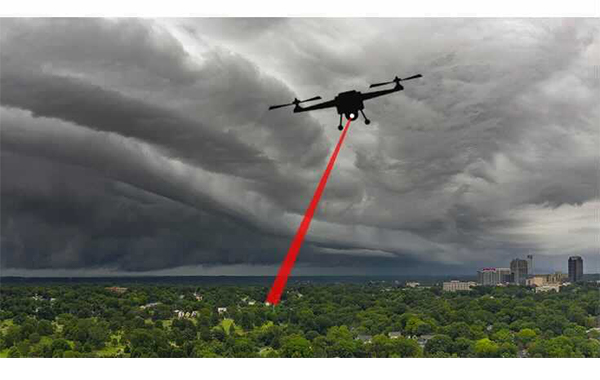Researchers in the Cockrell School of Engineering are developing a communication chip that is able to send signals in harsh weather and over greater distances.
The team is developing this technology for military use in the Air Force, said Ray Chen, electrical and computer engineering professor. Chen, who is leading the research team, said the device uses transparent wavelengths that help signals travel farther.
“I have a dream that one day the research device we developed can appear in everyone’s living room,” Chen said.
Chen said the team is working to develop the chip based on the Air Force’s needs for their communications system.
“With the funding available in next two years, we'll develop a whole module, which can be the real-time testing of the free space communications system,” Chen said.
The team used Light Detection and Ranging for their device, which measures distance with laser wavelengths, Chen said.
“LIDAR (Light Detection and Ranging) can see very far without any interruptions,” Chen said. “LIDAR is currently used in much shorter wavelengths where it is easier to be perturbed by the foggy weather, but we operate on a transparent wavelength.”
When a wavelength is transparent, less light is lost in transmission, and therefore more information from a signal is maintained, Chen said.
Graduate research assistant Jason Midkiff is a researcher on the project and said the chip is important, as it is the next step in improving how signals are transmitted.
“That's the trend in everything in technology: Everything's getting smaller and smaller and more portable,” Midkiff said. “I like taking things that already exist and making them better.”
While this device will first be used to help military communications in areas where signals are difficult to maintain, Chen said he hopes it will have commercial applications for a wider audience. Midkiff said the research team is looking at applications for drones, satellites and self-driving car signals.
“Eventually, you can put (the chip) into handheld devices and drones and things like that because it’s small and more power efficient,” Midkiff said.
Chen said another advantage of the device is it has a wider range of visibility and does not need any moving parts, making it more power efficient and less likely to break.
The chip is being funded by the Office of Naval Research and the Air Force Research Laboratory, according to UT’s press release.





















